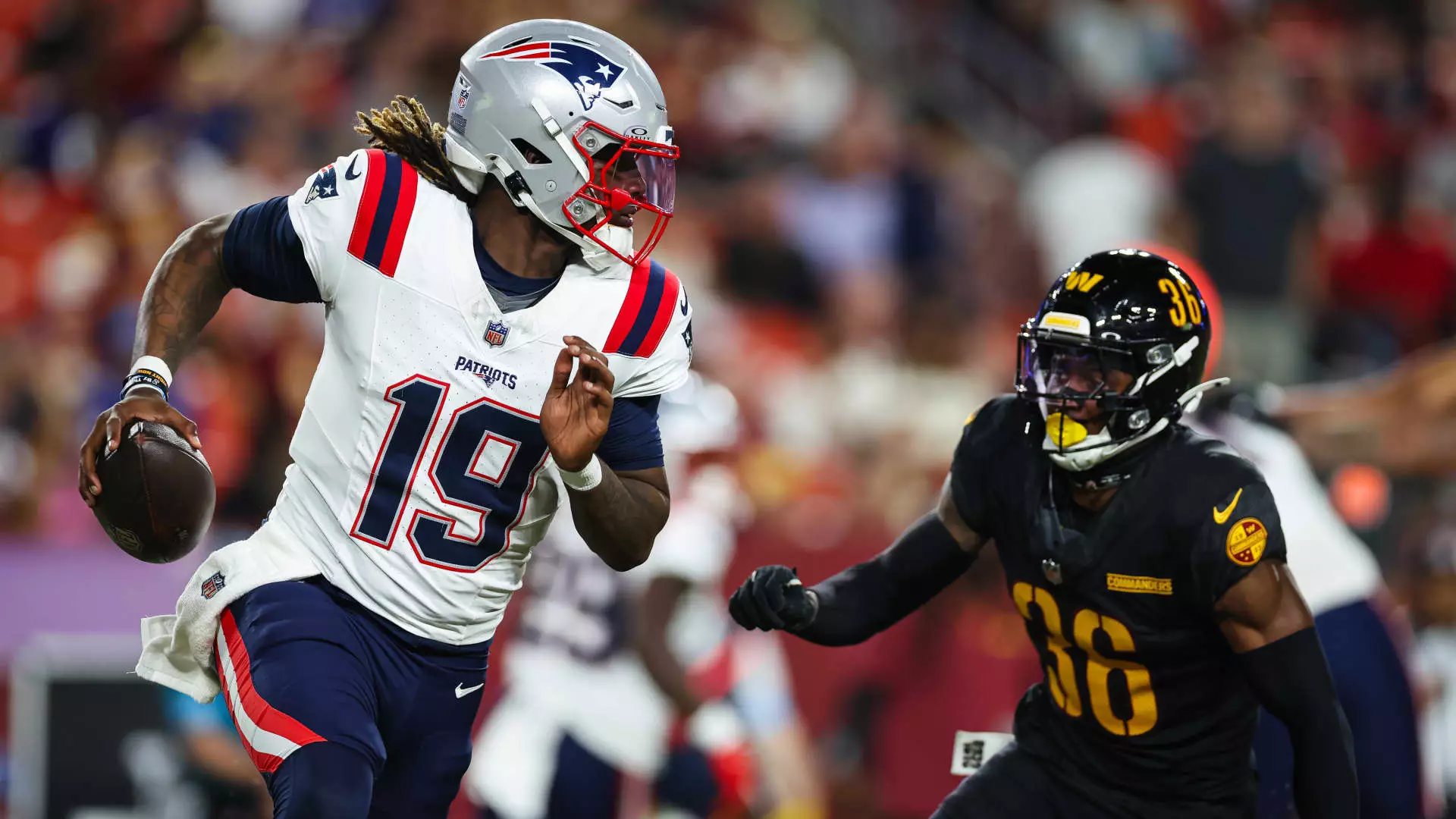With the return of football, sports betting is expected to reach new heights this NFL season. Projections from the American Gaming Association suggest that U.S. adults will wager a staggering $35 billion, representing a substantial increase of over 30% compared to last year. Despite the growing popularity and legalization of sports betting in numerous states, the stock performance of major gambling companies does not necessarily align with this upward trend.
While sports betting continues to expand throughout the country, stocks of key players in the industry such as DraftKings, Penn, Caesars, MGM Resorts, and Entain have seen negative year-to-date returns. Flutter, the owner of FanDuel, stands out as an exception with a 19% increase in its stock value following its listing on the New York Stock Exchange. Churchill Downs and Rush Street Interactive have also experienced notable gains. This discrepancy between the growth of the sports betting market and the stock performances of these companies raises questions about other factors influencing investor sentiment.
In an effort to capture a larger share of the sports betting market, licensed sportsbooks are actively developing strategies to attract new customers and retain existing ones. The NFL kickoff presents an opportunity for these companies to introduce new technological advancements and innovative wagering options to entice players. Sportsbooks are tailoring their promotions to appeal to a broader audience and enhance customer loyalty. For example, FanDuel has partnered with YouTube to offer a unique “Sunday Ticket” package, allowing players to watch out-of-market NFL games after placing a wager.
In a landscape where more than 95% of sports wagers are made online, the speed and efficiency of platforms have become crucial. FanDuel has taken steps to enhance its mobile app interface and expand its betting options to accommodate the growing demand for real-time wagering, especially micro-betting during games. Similarly, DraftKings has introduced innovative prop bets like the “No Touchdown” option, catering to the diverse preferences of bettors.
The sports betting industry continues to attract new entrants, such as Fanatics Sportsbook, which leverages its existing customer database of 100 million sports fans to acquire and retain customers. By offering unique rewards and experiences, including partnerships with athletes and celebrities, Fanatics has quickly expanded its operations across multiple states. This approach highlights the importance of engaging with customers beyond traditional betting activities to build long-term relationships.
Penn Entertainment, in partnership with ESPN, has made significant investments in developing ESPN Bet, a rebranded sportsbook aimed at enhancing the overall betting experience for users. Despite facing scrutiny and challenges, Penn Entertainment remains optimistic about the integration of media and sports betting, emphasizing the importance of customer engagement, loyalty, and product innovation as key drivers of success.
As the sports betting landscape evolves and expands, companies are continuously adapting their strategies to capitalize on the growing demand for online wagering. The discrepancy between market growth and stock performances reflects a broader trend of investors reassessing the value proposition of gambling companies. By prioritizing innovation, customer engagement, and strategic partnerships, sportsbooks aim to differentiate themselves in a highly competitive market and drive sustained growth in the evolving world of sports betting.

